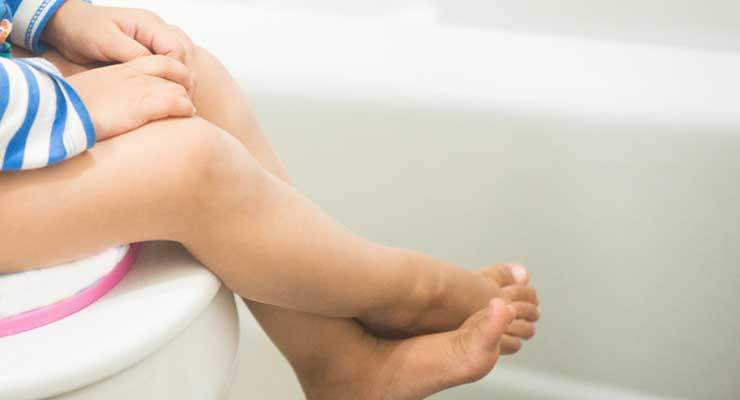Your toddler’s urination problem could be a minor condition or a sign of something more serious. Unfortunately, her limited communication skills can make it difficult to tell what’s really going on. Take all problems seriously — you may be able to solve the problem with slight modifications to your child’s routine or your child may need a visit to her pediatrician.
Signs of a Problem
Painful urination is a sign of a urinary tract infection, but your toddler may or may not be able to tell you that it hurts when he pees. Look for signs that he’s going less, such as a dry diaper or fewer potty trips. There may also be a problem if the color or scent of the urine has changed. If your child has been potty trained, but he suddenly starts having frequent accidents, he may also have a problem. In some cases, your child may have a fever and no other symptoms.
Possible Causes
Urinary tract infections are typically bacterial and the cause for many toddler urination problems. This can cause an odd-smelling, cloudy colored urine that’s often painful. A change in schedule or routine, such as starting school or going to a new babysitter, can cause some children to have problems. Dark yellow urine is often a result of dehydration, and urine with an odd smell may be related to something your child ate, such as asparagus. Rarer causes of urinary problems include diabetes and injury to the kidney region.
Talking to Your Child’s Doctor
Make a list of symptoms so that you can talk to your doctor. If your child has symptoms of a urinary tract infection, make an appointment as soon as you can, as your child will need medication. If the problems seem more behavioral, such as sudden accidents, keep a log of when it happens over a period of time. It may just be a week-long phase, or it may last longer. You can discuss it at your child’s next well visit or make an appointment if you are concerned.
Potential Solutions
Antibiotics will usually cure a urinary tract infection. Give your child extra water if you think that she’s experiencing dehydration. If your child has started having accidents, be patient with him. Getting angry may make things worse. Try to encourage him to go to the toilet more frequently and make sure he’s wearing clothes that he can easily remove when he needs to use the potty.
Bed-Wetting
In the toddler ages, bed-wetting is common and is not a cause for concern. It is typically a result of a child not having a mature enough bladder to hold the urine throughout the night. The American Academy of Pediatrics states that most children will stop bed-wetting by the time they are 5 years old. In the meantime, consider making her wear a diaper or pull-up at night, having a plastic mattress or cover and having several clean sets of sheets in case you must change them in the middle of the night.





